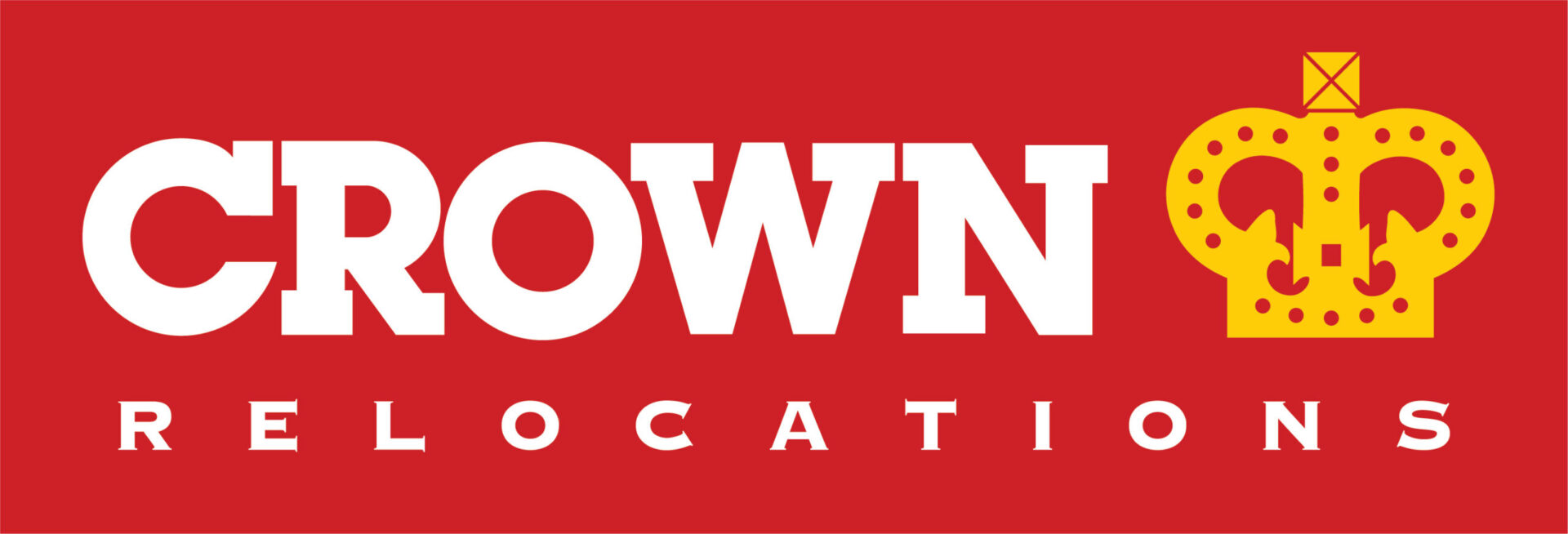Canada
Destination country guides
The complete guide to moving to Canada
Moving to Canada opens the door to a world of possibilities and experiences. Whether you are seeking a new career path, higher education, or simply a change of scenery, Canada’s diverse landscapes, vibrant cities, and welcoming communities make it an ideal destination for those looking to start a new chapter in their lives.
But while this seems like an exciting journey, you may face some challenges that come with relocating to a foreign country. As leaders in international removals to Canada, Crown Relocations understands these challenges and are here to assist you every step of the way. We’ve put together a guide with all the essential information for your move to Canada.
Home
Buying a House in Canada
Buying a house in Canada can be a significant and rewarding step for both individuals and families looking to establish themselves in this beautiful and diverse country. Canada offers a wide range of housing options, from bustling urban neighbourhoods to serene rural settings.
As an expat, you can purchase a house in Canada. However, there are a few key points to consider before proceeding.
First, having a work history and financial stability is crucial for Australians moving to Canada. Starting your credit journey in Canada may seem challenging because you’re new to the country. To enhance your chances of getting a mortgage, it’s important to establish a Canadian credit profile promptly. Building a credit history will not only boost your eligibility for a mortgage but also give lenders the confidence to offer you beneficial terms.
Secondly, it’s important to consider the various expenses involved, including property transfer taxes, legal fees, and other costs. Research these expenses in your chosen location to budget effectively.
Finally, be prepared for an extended waiting period due to complex property processes and the challenges of securing a loan. For Australians moving to Canada with limited credit history in Canada, finding a lender willing to extend financial support may require extra time. It’s essential to stay patient and remain persistent throughout the process.
Setting up home
Before securing a place in Canada, it’s essential to consider critical factors, such as your budget, housing preferences, and desired location. Once you’ve carefully evaluated these aspects and made your housing choice, you can begin your search online. There are several online platforms available to help you find accommodation in Canada, such as:
- Realtor.ca: This website is an excellent starting point for your housing search in Canada. It provides an extensive database of properties available for rent and purchase, along with valuable resources to compare your options.
- Kijiji: Kijiji features property listings, offering a range of rental and purchase options for homes and apartments.
- PadMapper: If you’re looking for rental apartments or houses, PadMapper provides a user-friendly interface to search for available properties in your preferred location.
Transporting your belongings
Moving to Canada from Australia can be challenging, especially when it involves moving an entire household of belongings. Choosing Crown Relocations for your international removal to Canada makes the process more manageable. Our team of professional movers handles every aspect of your move, from safely packing and secure loading to efficient transportation and timely delivery.
When it comes to moving your belongings, we offer flexible options like sea freight or air freight, tailored to your specific needs. If you have a large volume of items or are working on a more relaxed timeline, our competitive sea freight rates can be a cost-effective choice. For those essential items you can’t wait to have on hand, like kitchen essentials, clothing, or toys, our door-to-door air freight service ensures swift delivery.
We understand that moving to Canada can be stressful. That’s why Crown Relocations provides peace of mind by managing every detail of your move, ensuring a smooth transition to your new home.
Utilities
Utilities in Canada are an essential part of settling into your new home. From setting up electricity and water services to ensuring a reliable internet connection, the process requires careful consideration.
The first step you need to take is contact your local utility providers to establish your basic services. Each province and territory may have different utility companies, so research the options available in your specific area.
For electricity and gas, it’s important to understand the billing process, whether it’s based on usage or a fixed monthly fee. Some providers bill based on usage, while others offer fixed monthly fees. Consider your consumption habits and enquire about seasonal rate variations when choosing the best billing method for your needs.
Internet and cable services can vary in terms of providers and plans. To make the right choice, compare factors like internet speed, data limits, and pricing. Taking these steps will help ensure a smooth transition when it comes to utilities in Canada.
Finances
It is important to manage your finances so that you can support yourself and your family when moving to Canada.
- Open a bank account: Opening a bank account with a Canadian financial institution before or shortly after your arrival, will simplify your financial transactions and help you establish your Canadian credit history.
- Create a financial plan: Moving to Canada can incur various expenses. So, creating a detailed financial plan is equally important. Consider various expenses such as housing, transportation, groceries, and leisure activities. Sticking to a budget will help you maintain financial stability during your transition.
- Monitor exchange rates: It is wise to keep an eye on currency exchange rates, as they can fluctuate. You can use online currency converters or seek advice from financial experts to make informed decisions about converting your money at the most suitable rate. For more information, visit our Foreign Currency Transfer.
Lifestyle
Getting around
Canada has a well-connected transportation system that’s easy for both residents and visitors. It is renowned for its extensive rail system, operated by VIA Rail. The national passenger rail service connects major cities and offers scenic journeys through the country’s stunning landscapes. For destinations not directly accessible by train, intercity buses and private operators like Greyhound serve as a valuable alternative. There are efficient subway and light rail systems in major cities like Toronto, Vancouver, and Montreal, efficient subway and light rail systems streamline urban transit.
If you like to explore off-the-beaten-path locations or prefer driving, you can easily rent a car. The road infrastructure is generally excellent but be aware of local driving rules and changing conditions, especially in the northern regions.
Canada also promotes eco-friendly options like bike-sharing programs and well-maintained bike lanes in cities, making it a fantastic way to explore and nature.
Canada’s transportation options cater to diverse preferences and budgets, making it easy to get around this vast and diverse country with ease and convenience.
Everyday life
Everyday life in Canada is a blend of diverse cultures, a love for nature, and a commitment to being environmentally friendly. Canadians are known for being punctual and hardworking, which helps them have well-organised daily routines. Taking care of the environment is important, with practices like recycling and using green transportation being common.
Families hold a special place in Canadian culture, and weekends often involve outdoor adventures or exploring charming towns and historical sites. When it comes to food, Canada offers a wide variety of dishes, from local favourites to international cuisine. It also boasts a lively arts and culture scene, with many museums, theatres, and music venues to enjoy.
Whether you’re savouring pancakes with maple syrup in a cozy café, dancing at a music festival, or taking a peaceful stroll in the beautiful outdoors, moving to Canada offers a mix of diverse experiences and cherished traditions.
Transport
Can I drive in Canada?
When moving to Canada from Australia, you’ll find that driving in Canada is quite accessible. Canadian provinces recognise Australian driver’s licences, which means Australians moving to Canada can usually drive using their Australian licence for a certain period, often around three months. You may need to obtain an International Driving Permit (IDP) prior to your arrival, which will allow you to drive in Canada up to one year.
It is essential to check the specific regulations in the province where you’ll be residing, as rules may vary slightly. Some provinces may require you to obtain a Canadian driver’s licence after a certain period or upon establishing residency.
Education
School options in Canada
If you’re moving to Canada with your family, you’ll find various school options for your children. There are public schools, which are tuition-free for residents, and private school which require fees.
Public schools provide a diverse and inclusive English-speaking environment, making it easier for your children to adjust. However, there are also French-speaking public schools available in provinces like Quebec, where French is the primary language.
In Canada, education is highly valued, offering you a range of options to suit your child’s needs. To make the best choice, prior to moving to Canada, research schools in your chosen area and consider language requirements and curriculum alignment.
Legal System
Canada’s legal system follows the rule of law. It combines elements of both British and French legal traditions. It is organised with federal and provincial or territorial governments sharing legal authority. This system guarantees fairness and access to courts for everyone.
Canada’s legal system can be broken down into different areas, such as:
- Civil law: Civil law covers disputes between individuals and entities, including issues like contract disputes, personal injury claims, and family law matters.
- Criminal law: This area deals with crimes, such as theft, assault, and murder. It defines what actions are considered crimes, their penalties, and the process of investigation and prosecution.
- Administrative law: This area deals with matters such as immigration appeals, regulatory decisions, and disputes involving government actions.
- Constitutional law: This area includes the Canadian Charter of Rights and Freedoms, which safeguards citizens’ rights and freedom.
Overall, Canadians take the rule of law seriously. Their judiciary operates independently to make sure things are done fairly.
Employment, Visas and Permits
As an Australian moving to Canada, job searching can be a challenging task. However, Canada’s robust economy and diverse job market offer exciting opportunities for career advancement.
It is important to research the job market in your specific industry as this will improve your chances of finding a job. Networking holds a great significance in the Canadian job market, so consider joining professional organisations and participating in industry events to build connections.
While English proficiency is often sufficient, learning French, especially in Quebec, can significantly broaden your job options.
You can utilise online job platforms, company websites, and recruitment agencies, to explore job opportunities. Here are some widely used online job platforms in Canada:
- Indeed: A global job search engine that is also quite popular in Canada. You can search for jobs by location, industry, salary, and more.
- LinkedIn: Not only is it a professional networking platform but also a job search portal. Many Canadian employers and recruiters use LinkedIn to post job openings and find candidates.
- Monster: this is another well-known job search website, offering a wide range of job listings across various industries.
When moving to Canada, understanding the visa and work permit procedure is crucial. For employment purposes, you’ll require a Work Visa (if you have a job offer) or an Express Entry Visa (if you meet specific criteria). If you’re relocating to Canada before securing a job, you have the option to apply for a Work Visa. This allows you to start working legally as soon as you secure a job.
The average work week in Canada can vary from 36 to 40 hours, providing flexibility and opportunities for remote work. Salaries are competitive and can fluctuate depending on factors such as your location, industry, and experience. This setup not only provides a healthy work-life balance but also guarantees fair and fulfilling compensation for employees.
Health
Health in Canada is a top priority, providing access to high-quality healthcare services through a publicly funded system called Medicare. This means that basic medical care, such as doctor visits and hospital stays is generally free for residents.
While most healthcare services are covered by the government, some people choose to have private health insurance to cover additional costs like prescription medications, dental care, or private hospital rooms. This added insurance provides peace of mind and ensures that individuals can access a broader range of medical services beyond the basics offered by the public healthcare system.
Moving to Canada with Crown Relocations
Moving to Canada from Australia with Crown Relocations ensures a smooth transition. Our comprehensive services, including expert packing, secure storage, and reliable transportation, make your move as seamless as possible; allowing you to focus on embracing the richness of your new Canadian adventure.
Canada welcomes newcomers with its diverse culture and economic opportunities. Whether you’re moving for work, education, or a fresh start, you can trust Crown Relocations to provide the support you need when moving to Canada from Australia.
As you embrace this exciting adventure, rely on our expertise to make your move a memorable experience. Your journey to Canada with Crown Relocations marks the beginning of a new chapter in your life.
Moving to Canada
Ready to get moving?
Get the quickest quote possible
We understand that waiting at home for a moving consultant may not be convenient, which is why we offer a simple video assessment using your smartphone.
You can choose between a guided live video consultation “Smart Consult” with one of our moving experts or a self-service video option. Either choice will provide us with everything we need to know to accurately assess and prepare your moving quotation.
Go knowing....
Contact
- 3/4 Tucks Rd, Seven Hills NSW 2147 Australia
- +(61) 3 8586 7600
-
Mon-Fri, 8:30am - 5:00pm
Business hours










